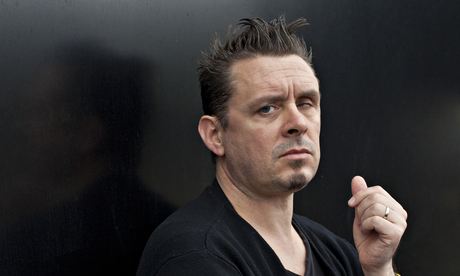
My memories of that Friday night are fractured. There was a lot of drinking, that's for sure. I'd just finished a long week in the office – I was a communications manager for an American multinational – but otherwise I was feeling pretty good, doing well at work and looking forward to a surfing trip I'd booked.
Life hadn't always been so ordered. At 21, I'd developed keratoconus, a genetic disease that distorts the shape of your corneas, causing you to lose focus. If you imagine looking through a badly focused camera, that was how my world looked. Eventually, a corneal graft was performed on my left eye; this, with glasses, restored full vision. But the process was rather protracted, so five years later, when the time came to consider repeating it on my now useless right eye, I decided I had better things to do.
That night, 15 years on, I was sitting in a pub beer garden with one of my oldest friends. The night wore on and we met a couple of girls, then headed back to my friend's house with some beers. An argument started – I can't even remember what it was about. There was some half-hearted tussling, a few punches were thrown, and then came the sudden, overwhelming realisation that something was fundamentally wrong. No single punch sticks in my memory; just dawning confusion about why my legs would no longer support me. I felt myself falling. It was only when I was lying on the ground that I became aware I couldn't see. My left eye had exploded. As I lay there, its contents dripped down the walls and off my face. I'm told it was quite something.
I was taken to the emergency department at Preston hospital, where various doctors and nurses made ominous noises. They operated, restoring physically what they could of my left eye. I remember a voice emanating from the blurred outline of a doctor the next day telling me that the prognosis was "very guarded". I'm still not sure what that means.
Four months later, a consultant casually mentioned that the sight in my left eye was lost for ever. The pressure that gives the eye its shape had gone, leaving it like a half-inflated football. As a result, it would remain impossible to operate on. Instead, they would now seek to rebuild what sight they could in my right eye, while doing everything possible to avoid the risks inherent in performing another transplant.
I wouldn't have reliable sight again for three years. Life became about coping strategies. Without telling the doctors, I went back to running. After a series of trips and falls and, on one occasion, near-impalement on a piece of scaffold a builder had left sticking out of the back of his van, I developed a route I knew well enough to get round without injury. Music also assumed a central role in my life. I relearned guitar through touch, later going on to join a group and play live, even if I couldn't always see the audience.
Meanwhile, an optometrist called Andrew Tompkin was experimenting with a handmade contact lens. This, together with Intacs – small plastic rings implanted to sculpt the cornea – would eventually restore the sight in my right eye. It took nearly three years to develop the lens. It's about 3mm thick, ridged, non-porous, and entirely covers my right eye. The eye needs oxygen, so I have to take the lens out after six hours, then reinsert it. It means that a significant chunk of my right eye is now plastic, but also that I can see.
Physically, I'll never look the same again. My left eye will always remain slightly shrunken and half-closed, distorting the shape of my face. People will always stare at me and wonder what's wrong, but life goes on. It has to.
I never broke contact with that friend. He proved an invaluable ally in difficult times. What happened that night marked him as indelibly as it did me. We remain, and always will be, the best of friends.
But I never went back to my job. After years spent in varying degrees of incapacity, the idea of returning to corporate life seemed impossible. I moved to Moscow, where I met my wife and became a writer. Every second is precious. I'll never see anything with my left eye again. I want to make sure I see as much as possible with my right.
• Do you have an experience to share? Email experience@theguardian.com

